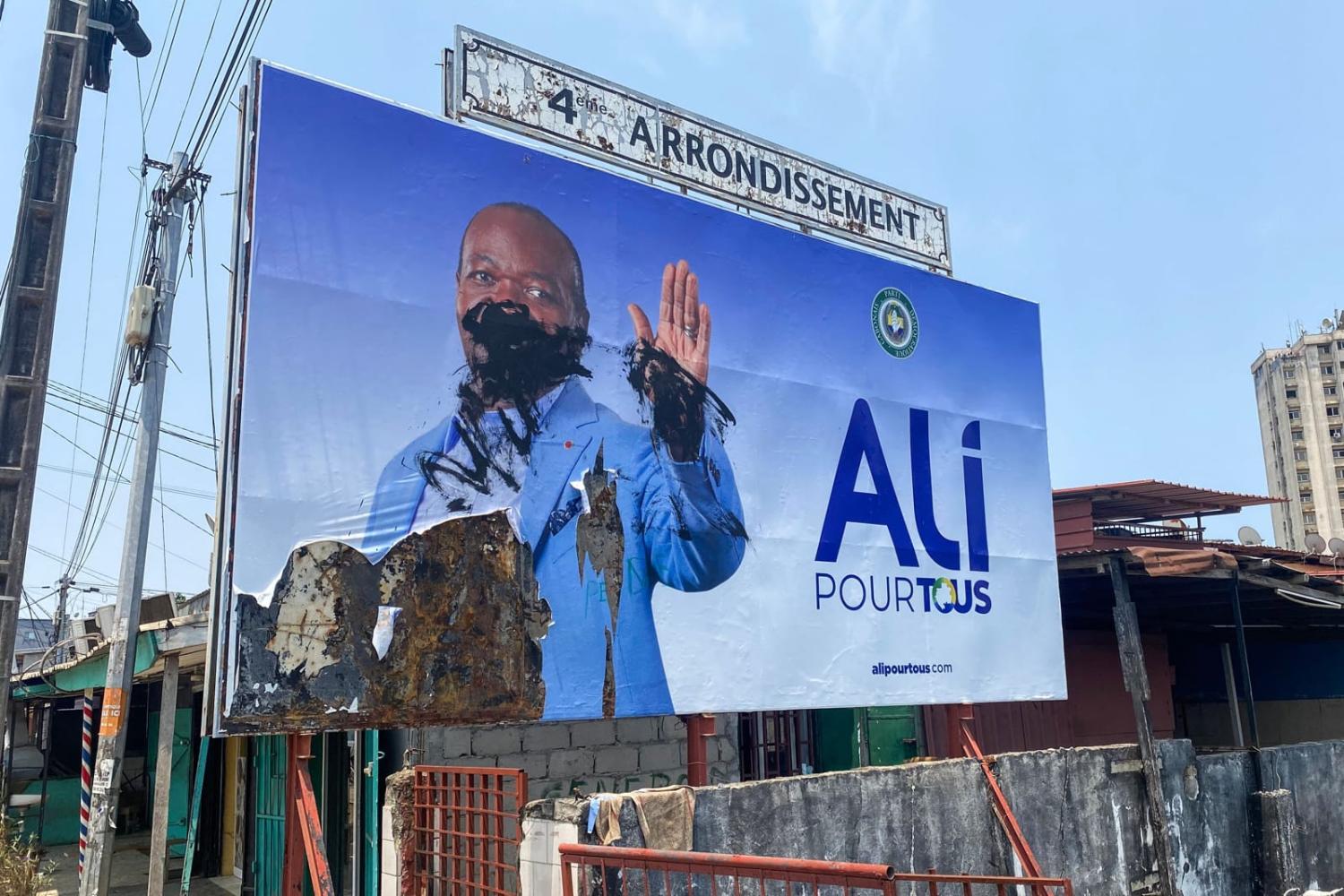On Wednesday 30 August, a group of Gabonese military officers announced that they had assumed power and placed President Ali Bongo Ondimba under house arrest. Minutes earlier, the electoral commission had announced Bongo had won a third term following the 26 August election.
The coup in Gabon follows recent putsches in six other former French colonies in Africa where France still wields significant control behind the scenes. All these coups were driven in part by a rejection of a political and economic status quo that catered to Paris, opening the door for non-Western economic partners, such as China. Beijing has sought to strengthen ties with Francophone countries over the past several years, and in a West Africa pushing back on French dominance, France’s loss is China’s possible gain.
In Gabon, the coup is not obviously driven by anti-French sentiment, although this is prevalent among the broader population. In this small, oil-rich country, the need for the transitional government to keep up an anti-French appearance represents an opportunity for China to promote its regional and geopolitical interests more proactively.
The dynamics in Gabon are different from those in the Sahelian countries. Gabon is geographically separate, significantly richer, has a smaller population of just over 2 million, no extremist militant activity, and was considered politically stable until the recent coup, even including a short-lived quasi-coup in 2019. Ali Bongo became President in 2009, taking over from his father Omar Bongo who had ruled the country since 1967. Gabon boasts Africa’s third highest Gross Domestic Product (GDP) per capita (US$8,600 in 2022) and the continent’s highest rate of champagne consumption, with riches concentrated in the hands of the political and economic elite.
The personalities driving events in Gabon suggest that the military’s actions may represent an internal power shuffle within the extended Bongo family, not systemic change. Gabon’s new leader, General Brice Clotaire Oligui Nguema, was head of the Republican Guard, an elite security force charged with safeguarding the institutions of the state and the president. He is reportedly one of Ali Bongo’s cousins (Omar Bongo purportedly fathered 54 children) and was Omar Bongo’s personal assistant. General Oligui is not, as urged by Gabon’s opposition leaders, granting victory to Bongo’s main challenger, who for the first time in Gabon’s electoral history was someone without ties to the Bongo clan. Nonetheless, crowds in Gabon are celebrating the apparent end of the Bongo dynasty and the new regime will need to demonstrate distance from the Bongos – and by extension France – to maintain public support.

France had been a staunch supporter of both Omar and Ali Bongo. It made extensive investments in the mining and oil sectors and has around 400 soldiers permanently deployed in the country. France condemned the coup and called for a respect of democratic institutions and processes. The United States, with limited economic interests and a small diplomatic presence focused on climate policies and military cooperation, followed France’s lead. Russia is also a small player, and without a Wagner Group presence, has only wished for Gabon’s stabilisation.
China appealed for a peaceful resolution and Bongo’s personal safety. This fits with China’s responses to the other coups in the region and the Chinese government’s official policy of non-interference in the internal affairs of sovereign countries. Above all, China prioritises stability in its partners, regardless of their political ideologies, and China will undoubtedly build positive new relations with the transitional government and subsequent leaders of Gabon, civilian or military.
Gabon has been under the radar in terms of China’s strategic engagements in Africa, but it is an important potential ally for an evolving Chinese Africa strategy that seeks to diversify oil imports and strengthen relations with smaller African countries. China may import 22 percent of its manganese ore from Gabon and Chinese companies manage more than half of the country’s commercial logging areas, but imports from Gabon represent less than 1 percent and 1.3 percent of China’s crude oil and timber demand, respectively.
In addition, Beijing has been rumoured to be searching for a location to build a military base along Africa’s West Coast. If this is true, the ramping up of Sino-Gabonese relations over just this past year suggest Gabon might be a contender. After joining the Belt and Road Initiative (BRI) in 2018, China’s former foreign minister Qin Gang visited Gabon in January this year and Bongo went to Beijing in April for a four-day state visit, including a meeting with President Xi Jinping. During the April visit, Beijing upgraded relations to a “comprehensive strategic cooperative partnership”, which is considered the highest level of bilateral relations for China.
Although it is still too early for Beijing to pop open the bubbly, the different dynamics in Gabon as compared to the other recent coups in West Africa suggest that while China has good reason to be cautious in the Sahel, where instability is real with major risks to the BRI, Gabon could be a situation where it may want to have a bigger post-coup profile.

